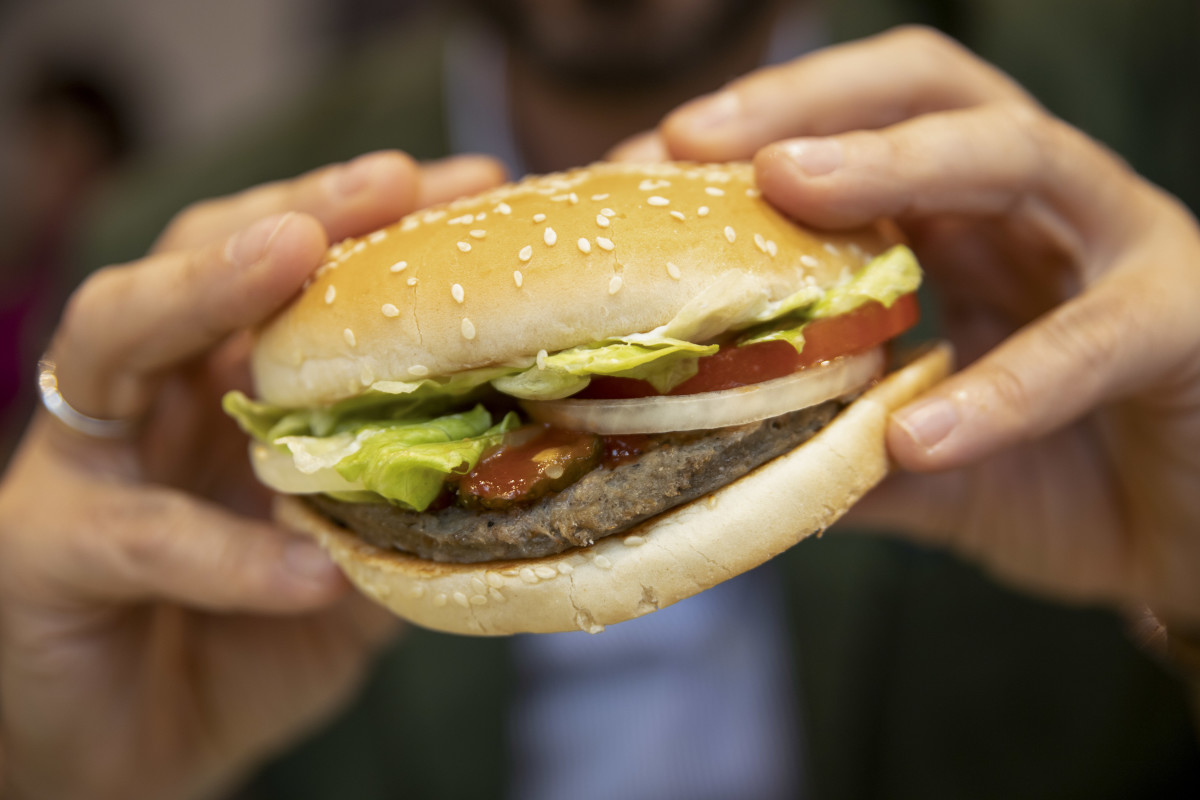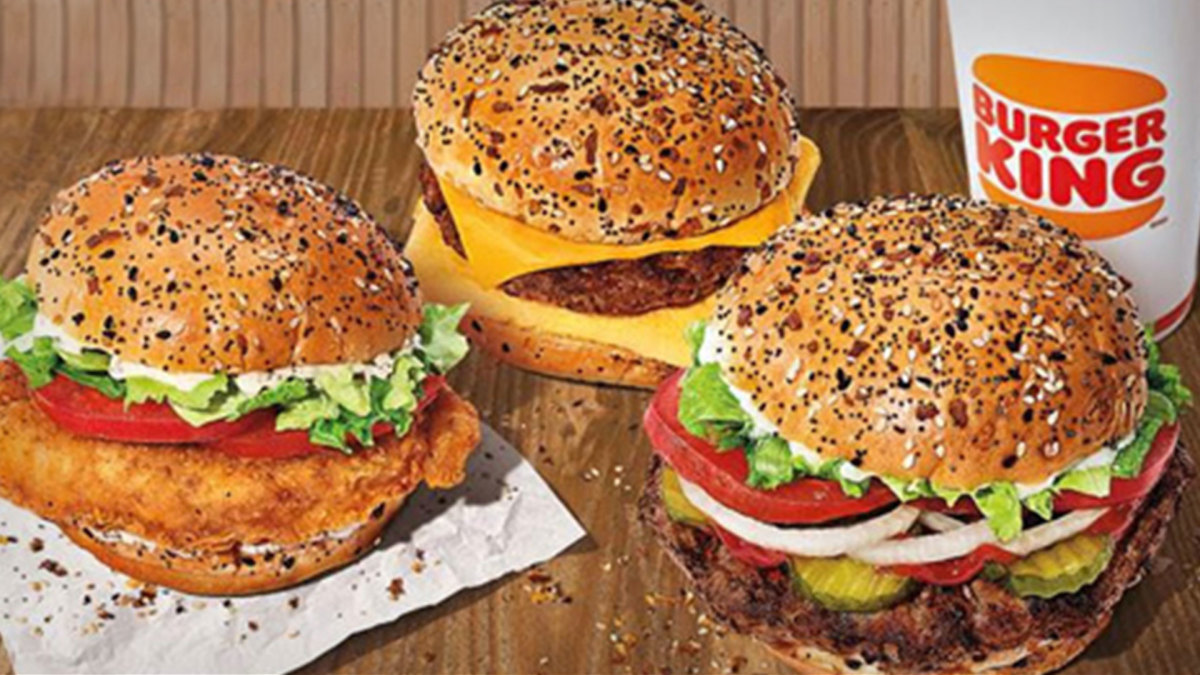
The answer lies with the french fries.
If you're looking for an economic indicator, you may want to keep an eye on the deep-fried julienne-cut potato, which originated in Belgium—or possibly France—and serves as a side dish for just about any meal.
Related: Analysts overhaul Palantir stock price target after Q3 earnings
While consumers seem to be cutting back on eating out, they still want to have their fries and eat them, too.
"We were seeing (consumers) visiting Burger King, Wendy’s and those types of places less, and at the same time items such as French fries are appearing more on their grocery lists,” Molly McFarland, founder and chief revenue officer with the advertising tech company AdAdapted, told Store Brands.
“This indicates that people are saying they’re not going to get dinner and their fries at McDonald’s," she added. "They’re going get a bag of frozen fries and make them at home.”
This change isn't happening overnight. Total sales of frozen fries for the 52 weeks ended Oct. 6 are up 3.3% in dollars, to $2.14 billion, but down 0.4% in units, according to data from the market research firm Circana.
💰💸 Don’t miss the move: SIGN UP for TheStreet’s FREE Daily newsletter 💰💸
Last month, food producer Lamb Weston, which gets about 14% of its sales from McDonald's (MCD) , said it had closed a plant in Connell, Wash., cut about 4% of its global workforce, and eliminated some unfilled positions.
“Restaurant traffic and frozen potato demand, relative to supply, continue to be soft, and we believe it will remain soft through the remainder of fiscal 2025," Chief Executive Tom Werner said.

Burger King
Burger chain CEO sees difficult environment
McDonald’s recently reported that global comparable sales declined 1.5% in the third quarter while net income dipped 3%. Comparable sales reflect sales trends at stores open at least one year.
Related: Analysts pick 3 stocks that could rock after President Trump's win
Restaurant operators reported a modest improvement in same-store sales and customer traffic for September, though readings for both indicators remained negative, according to the National Restaurant Association.
Looking ahead over the next six months, the trade group said, restaurant operators’ outlook for both sales and the economy remains uncertain.
Josh Kobza has seen that consumer slowdown on his end of the fast-food chain.
The chief executive of Restaurant Brands International (QSR) , which owns fast-food chains such as Burger King, Tim Hortons, and Popeyes, cited some of the challenges faced by the Toronto company.
"Our teams and franchisees are doing a nice job navigating difficult macro and competitive environments in the U.S., Canada and many of our international markets," Kobza told analysts during its recent third-quarter-earnings call.
Kobza tried to make lemonade out of lemons, highlighting performance relative to rivals.
"While a bit slower than earlier in the year, our results were nicely ahead of some of our largest global peers and reflect some great work from our partners around the world," he added.
Still, slowing demand is evident globally, with strong countries offset by weak demand elsewhere.
Burger King grew in key markets like Australia, Spain, Korea, the U.K., and Japan, but the chain faced softer demand in France and "pressures from the difficult operating environment in China and the conflict in the Middle East," he said.
The fast-food chain unveils lackluster third-quarter results
The company's adjusted profit of 93 cents a share was up from 90 cents a year earlier but fell short of analysts' consensus forecast of 95 cents.
Revenue totaled $2.29 billion, beating last year's tally of $1.83 billion again but missing Wall Street's call: $2.31 billion.
Worldwide same-store sales were up an anemic 0.3% in the quarter.
Among the company's reporting segments, comparable sales were 2.3% higher at Tim Horton's, which was down from a positive 7.6% a year earlier. 'They were off 4.8% at Firehouse Subs vs. a 3.6% rise a year earlier, off 0.7% at Burger King, and off 4% at Popeyes.
More Retail Stocks:
- Starbucks makes a major move many coffee drinkers will love
- Amazon's big tech plans pay off for customers (and its pockets)
- Once nearly-bankrupt used car dealer hits new highs
Burger King’s same-store sales fell 0.7% during the three-month period ended Sept. 30. Analysts had expected the metric to be flat with a year earlier.
Shares of Restaurant Brands International are down 12.6% year-to-date and up less than 1% from a year ago.
Analysts weigh in on Restaurant Brands' business
Investment firms issued research reports after the company posted its quarterly results.
CIBC pared its price target on Restaurant Brands to $86 from $88 while maintaining an outperform rating on the shares.
The investment firm said Restaurant Brands leaned on operating leverage to drive an in-line earnings performance despite weaker-than-expected sales growth across brands and geographies.
The firm moderated its fiscal 2025 estimates to reflect "softer-for-longer" comparable sales and a weaker unit-growth outlook.
RBC Capital analyst Christopher Carril lowered the firm's price target on Restaurant Brands to $90 from $95 but affirmed an outperform rating on the shares.
Carril said the company reported a mixed quarter. The company posted a 2.5% revenue miss, the analyst said. On the plus side, Restaurant Brands is demonstrating that it can manage expenses in a challenging macro environment.
Related: Amazon's big tech plans pay off for customers (and its pockets)
Carril said this could give investors confidence in some level of earnings support next year.
KeyBanc analyst Eric Gonzalez lowered the firm's price target on Restaurant Brands to $78 from $80 and kept an overweight rating on the shares.
Gonzalez noted the company's results broadly missed consensus forecasts as Restaurant Brands faced macro and competitive challenges during the period.
The company reduced its full-year outlook for systemwide sales to 5% to 5.5% and unit growth to 3.5%.
Related: Veteran fund manager sees world of pain coming for stocks







